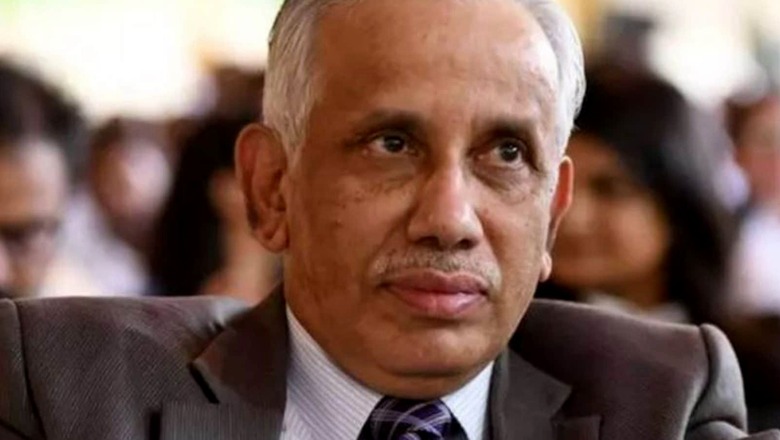
views
The Centre’s decision to appoint former Supreme Court judge Justice S Abdul Nazeer as the Governor of Andhra Pradesh has triggered a war of words between the Opposition and the ruling BJP, with the former alleging that the appointment is a quid pro quo.
Amid the political slugfest, it is worth looking into if Justice Nazeer is the first such appointment. However, that is not the case. Even in the past, former Chief Justice of India P Sathasivam and Justice Fatima Beevi were appointed as Governors of Kerala and Tamil Nadu respectively.
Former Chief Justice P Sathasivam
Born on April 27, 1949, Justice Sathasivam enrolled as an advocate on July 25, 1973 at Madras. He was appointed a permanent judge of the Madras High Court on January 8, 1996, and elevated to the Supreme Court on August 21, 2007.
Justice Sathasivam also served as the 40th Chief Justice of India, holding the office from 2013 to 2014. On retirement from his judicial career, he was appointed the 21st Governor of Kerala from September 5, 2014, to September 4, 2019.
Justice Sathasivam, along with Justice BS Chauhan, delivered the judgment in the 1993 Mumbai blasts case, sentencing several accused persons — including Bollywood actor Sanjay Dutt — to five years imprisonment.
Former Supreme Court Judge Fatima Beevi
Born on April 30, 1927, in Kerala, Justice Beevi enrolled as an advocate on November 14, 1950. She was appointed as the judicial member of the income tax appellate tribunal in January 1980. Three years later, she became a judge of the Kerala High Court and was made permanent in 1984.
Justice Beevi was elevated to the Supreme Court as a judge on October 6, 1989, and retired in 1992.
Five years later, she was appointed the Governor of Tamil Nadu. She took charge at the Raj Bhawan in Chennai on January 25, 1997, when HD Dewe Gowda was the Prime Minister.
However, she resigned on July 1, 2001, even before completion of her tenure, following the controversy over her decision to invite J Jayalalithaa to form the government in May that year.
LEGAL FRATERNITY’S TAKE ON THE ISSUE
There is no legal bar in the Constitution which stops the government from making such an appointment. “However, in the past when such appointments were made, there was a sufficient period that existed between the retirement and such a post being given,” said Former Law Secretary PK Malhotra.
Malhotra added that such an appointment should not be seen a quid pro quo as it sends a wrong message to the public at large and hits at the image of independence of judiciary.
“Arun Jaitley had once said that judges look for such posts post retirement and there shall be a cooling period between such appointments so that their judgments do not get compromised,” he said.
Former Allahabad High Court Chief Justice Govind Mathur said: “This isn’t the first time that such an appointment has been made. So, the precedent is already there. The question here is of prosperity of such kind of appointments.”
He added: “There is no kind of provision which actually prescribes a cooling period in such kind of appointments but the main thing is independence of judiciary and the message to public at large, so judges are required to restrain themselves.”
Justice Mathur also said that according to him, there should be a provision in the Constitution to restrict such post-retirement employment for judges.
POLITICS OVER JUSTICE NAZEER’S APPOINTMENT
The government on Sunday appointed six new faces as governors, including Justice S Abdul Nazeer (retd), who was part of the historic 2019 Ayodhya verdict, and four BJP leaders, besides carrying out a rejig of the gubernatorial posts in seven states.
Justice Nazeer has been appointed as the Governor of Andhra Pradesh.
The Congress attacked the government over the appointment and called it a “great threat” to the independence of the judiciary.
Taking to Twitter, Union Law Minister Kiren Rijiju said India will be guided by the provisions of the Constitution. “The Whole Eco-system is once again in full swing on the appointment of a Governor. They should better understand that, they can no more treat India as their personal fiefdom. Now, India will be guided by the people of India as per the provisions of the Constitution of India,” the minister tweeted.
Read all the Latest India News here
















Comments
0 comment